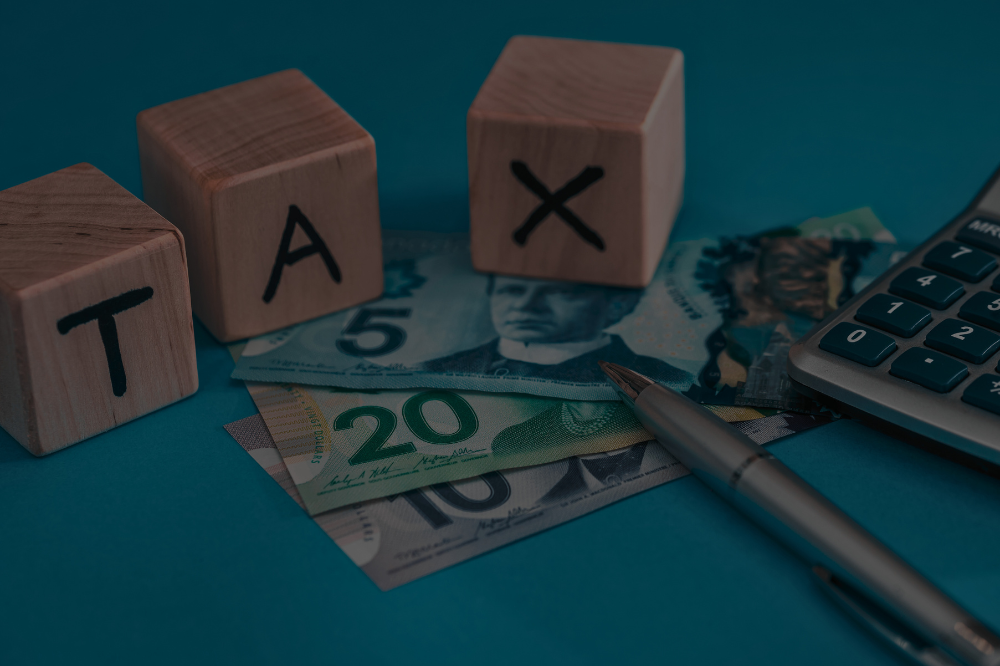Find out what are the self-employed tax deductions that you should claim in Canada!
If you are a self-employed individual in Canada, there are some tax deductions you can claim, which can significantly reduce your taxable income, ultimately saving you money. But do you know what are the ones available?
We are going to tell you the most common eligible deductions you can get, so you can make the most out of you money. Also, if you want to check out more financial tips on our website, you can click on this link!
What Self-Employed Tax Deductions Can I Claim In Canada?
For self-employed individuals, tax deductions play a crucial role in managing finances. Unlike salaried employees, the self-employed are responsible for covering their own expenses related to their business operations. By claiming eligible deductions, you can reduce your taxable income, meaning you’ll pay less in taxes. This is particularly important for those who operate small businesses or work as freelancers, where every dollar counts. So, find out what types you can claim.
Home Office Expenses
One of the most significant deductions is home office expenses. If you work from home, you may be eligible to deduct a portion of your household expenses, such as rent or mortgage interest, utilities, property taxes, home insurance, and maintenance costs. To qualify, the space you use must be your principal place of business or used exclusively for business activities on a regular basis. The Canada Revenue Agency (CRA) requires you to calculate the percentage of your home that is used for business to determine the deductible amount.
Vehicle Expenses
If you use your vehicle for business purposes, you can claim a portion of your vehicle-related expenses. This includes fuel, maintenance, insurance, registration fees, lease payments, and even the interest on a car loan. It’s essential to keep a detailed log of your business-related mileage to accurately calculate your deduction. Only the percentage of expenses that relate to your business use of the vehicle is deductible.
Office Supplies and Equipment
Office supplies such as paper, pens, postage, and other materials necessary for your business operations are fully deductible. Additionally, you can claim a deduction for larger office equipment purchases, such as computers, printers, and furniture, either as a full expense in the year of purchase or as capital cost allowance (CCA), which allows you to deduct the cost over several years.
Professional Fees
Fees paid to professionals for services related to your business, such as legal, accounting, or consulting services, are deductible. These expenses are crucial, as they often involve guidance on tax planning, legal matters, or business strategy, which can have a significant impact on your business’s financial health.
Advertising and Promotion
To grow your business, advertising and promotion are essential. The good news is that these expenses are deductible. This includes costs related to online advertising, print media, billboards, and even the costs of hosting a website. Investing in advertising can help you attract new clients and increase your revenue, making it a worthwhile expense to deduct.
Meals and Entertainment
If you meet with clients or prospects over a meal or entertain them as part of your business, you can deduct 50% of these expenses. However, the CRA requires that these expenses be reasonable and directly related to earning business income. Keep detailed receipts and records to justify these deductions if audited.
Travel Expenses
Travel expenses related to your business, such as airfare, hotels, and meals while on a business trip, are also deductible. To claim these expenses, the travel must be necessary for your business, and you should keep detailed records, including receipts and the purpose of the trip.
Insurance Premiums
Insurance is a critical component of any business, protecting you from various risks. As a self-employed individual, you can deduct the cost of business insurance premiums, including liability insurance and property insurance. If you have private health insurance, those premiums may also be deductible.
Interest and Bank Charges
Interest paid on money borrowed for business purposes is deductible, as are bank charges related to your business account. This includes interest on business loans, credit card interest used for business expenses, and bank fees such as account maintenance charges or transaction fees.
How To Claim
The Statement of Business or Professional Activities on Canada Revenue Agency’s Form T2125 is a crucial document that requires careful attention. It is used to report all deductible expenses associated with your business. Whether you are filing taxes using software or manually, you must use this form to document your business income and expenses, including those related to your home office, vehicle usage, mileage, depreciation on assets, and capital expenditures.
Tips
- Keep Detailed Records: the key to maximizing your deductions is to maintain thorough and organized records of all business-related expenses. This includes keeping receipts, invoices, and a log of business activities related to your deductions;
- Separate Business and Personal Finances: it’s crucial to maintain separate bank accounts and credit cards for your business and personal expenses. This not only simplifies your bookkeeping but also ensures that you can easily identify and justify your business expenses during tax season;
- Capital Cost Allowance (CCA): certain assets that you purchase for your business, such as vehicles, machinery, or buildings, cannot be fully deducted in the year of purchase. Instead, they are deducted over time through the CCA. The CRA provides different CCA classes with varying rates, allowing you to depreciate the asset over several years;
- Consult a Tax Professional: tax laws can be complex, and the CRA’s rules and regulations frequently change. Consulting with a tax professional or accountant who specializes in self-employed taxes can help ensure that you are claiming all eligible deductions and complying with the latest tax laws.

